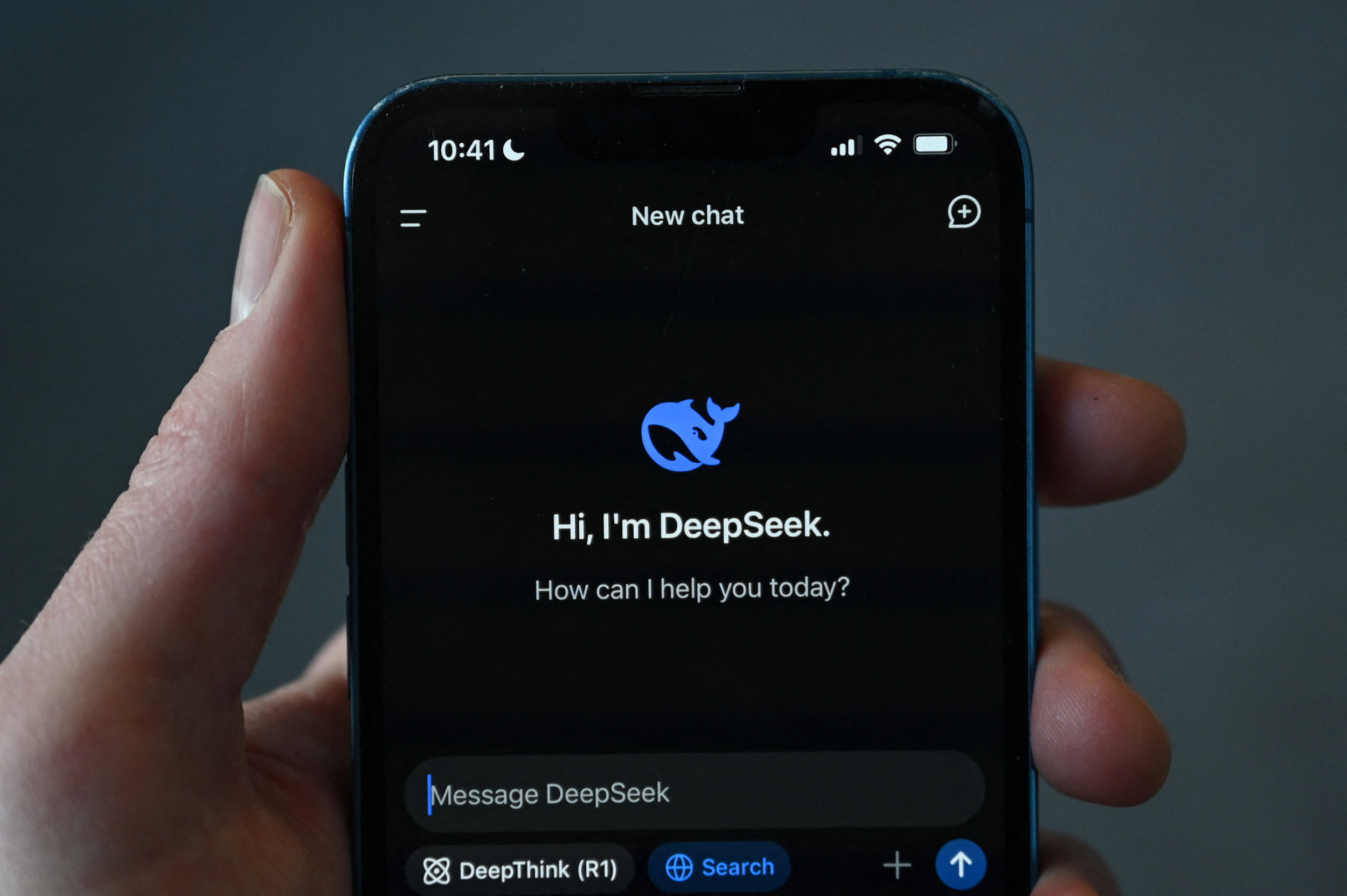The difficulty posed to America by China's DeepSeek expert system (AI) system is profound, casting doubt on the US' total approach to confronting China. DeepSeek offers innovative options starting from an original position of weak point.
America thought that by monopolizing the use and advancement of sophisticated microchips, it would forever cripple China's technological development. In truth, it did not occur. The inventive and resourceful Chinese found engineering workarounds to bypass American barriers.
It set a precedent and something to consider. It might occur every time with any future American technology; we shall see why. That said, American innovation stays the icebreaker, the force that opens new frontiers and horizons.

Impossible linear competitors
The issue depends on the terms of the technological "race." If the competition is purely a linear game of technological catch-up in between the US and China, the Chinese-with their resourcefulness and vast resources- may hold an almost overwhelming advantage.
For example, China churns out 4 million engineering graduates every year, nearly more than the rest of the world integrated, and has a massive, semi-planned economy capable of focusing resources on priority goals in ways America can barely match.
Beijing has countless engineers and billions to invest without the instant pressure for financial returns (unlike US companies, which face market-driven obligations and expectations). Thus, China will likely constantly reach and surpass the most recent American innovations. It might close the space on every innovation the US presents.
Beijing does not need to scour the world for advancements or conserve resources in its mission for development. All the experimental work and monetary waste have already been performed in America.
The Chinese can observe what operate in the US and pour cash and top skill into targeted projects, wagering rationally on limited enhancements. Chinese resourcefulness will manage the rest-even without thinking about possible industrial espionage.
Latest stories
Trump's meme coin is a boldfaced money grab
Fretful of Trump, Philippines drifts rocket compromise with China
Trump, Putin and Xi as co-architects of brave new multipolar world
Meanwhile, America might continue to leader new breakthroughs however China will constantly catch up. The US might complain, "Our technology transcends" (for whatever factor), however the price-performance ratio of Chinese products could keep winning market share. It could therefore squeeze US business out of the market and America might find itself increasingly having a hard time to complete, even to the point of losing.
It is not an enjoyable circumstance, one that may just alter through drastic measures by either side. There is already a "more bang for the dollar" dynamic in linear terms-similar to what bankrupted the USSR in the 1980s. Today, however, the US threats being cornered into the very same difficult position the USSR when faced.
In this context, simple technological "delinking" might not be sufficient. It does not mean the US must abandon delinking policies, but something more comprehensive may be required.
Failed tech detachment
Simply put, the design of pure and basic technological detachment may not work. China presents a more holistic challenge to America and the West. There need to be a 360-degree, articulated technique by the US and its allies towards the world-one that includes China under specific conditions.
If America is successful in crafting such a technique, we could picture a medium-to-long-term structure to prevent the threat of another world war.
China has actually perfected the Japanese kaizen model of incremental, marginal enhancements to existing technologies. Through kaizen in the 1980s, Japan wished to overtake America. It failed due to problematic commercial choices and Japan's stiff development design. But with China, the story could vary.
China is not Japan. It is bigger (with a population 4 times that of the US, whereas Japan's was one-third of America's) and more closed. The Japanese yen was fully convertible (though kept artificially low by Tokyo's reserve bank's intervention) while China's present RMB is not.

Yet the historic parallels stand out: both Japan in the 1980s and China today have GDPs roughly two-thirds of America's. Moreover, Japan was an US military ally and an open society, while now China is neither.
For the US, a different effort is now required. It should build integrated alliances to broaden international markets and tactical spaces-the battleground of US-China rivalry. Unlike Japan 40 years back, timeoftheworld.date China understands the significance of worldwide and multilateral areas. Beijing is attempting to transform BRICS into its own alliance.
While it battles with it for many factors and having an alternative to the US dollar global role is unrealistic, Beijing's newly found international focus-compared to its past and Japan's experience-cannot be overlooked.
The US must propose a brand-new, integrated advancement model that widens the group and personnel pool lined up with America. It should deepen integration with allied countries to develop a space "outdoors" China-not necessarily hostile however distinct, permeable to China just if it follows clear, unambiguous rules.
This expanded area would magnify American power in a broad sense, reinforce international solidarity around the US and offset America's market and personnel imbalances.
It would reshape the inputs of human and monetary resources in the current technological race, thereby influencing its ultimate outcome.
Register for one of our totally free newsletters

- The Daily Report Start your day right with Asia Times' leading stories
- AT Weekly Report A weekly roundup of Asia Times' most-read stories

Bismarck inspiration
For China, there is another historical precedent -Wilhelmine Germany, created by Bismarck, in the late 19th and early 20th centuries. Back then, Germany mimicked Britain, surpassed it, and turned "Made in Germany" from a mark of embarassment into a symbol of quality.
Germany ended up being more educated, free, tolerant, democratic-and likewise more aggressive than Britain. China might choose this path without the hostility that caused Wilhelmine Germany's defeat.
Will it? Is Beijing all set to become more open and systemcheck-wiki.de tolerant than the US? In theory, this might permit China to surpass America as a technological icebreaker. However, such a model clashes with China's historic tradition. The Chinese empire has a tradition of "conformity" that it has a hard time to escape.
For the US, the puzzle is: can it join allies more detailed without alienating them? In theory, this course lines up with America's strengths, however concealed difficulties exist. The American empire today feels betrayed by the world, especially Europe, and resuming ties under brand-new rules is complicated. Yet a revolutionary president like Donald Trump might want to try it. Will he?
The path to peace needs that either the US, China or both reform in this direction. If the US unites the world around itself, China would be isolated, dry up and turn inward, stopping to be a threat without destructive war. If China opens and equalizes, a core reason for the US-China dispute liquifies.
If both reform, a new international order might emerge through settlement.
This post first appeared on Appia Institute and is republished with consent. Read the original here.
Register here to talk about Asia Times stories

Thank you for signing up!
An account was already signed up with this e-mail. Please inspect your inbox for an authentication link.



